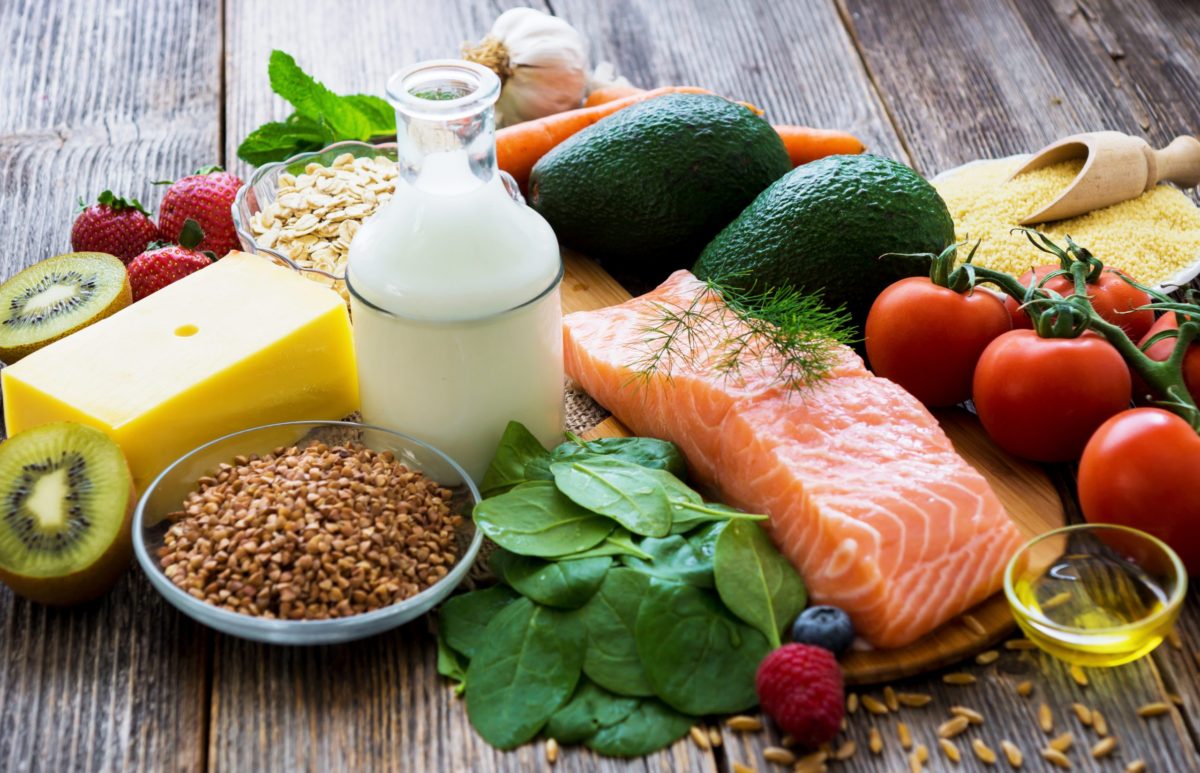By Fareeha Jay, Registered Dietitian
Arthritis is the most common cause of pain and inflammation in the joints.
There are many types of arthritis though the most common types are osteoarthritis (OA)and rheumatoid arthritis (RA). Research suggests that both these types are more prevalent among women. There is no cure for arthritis though treatment can help ease the pain and maximise mobility.

RA is an auto immune condition therefore some of the dietary strategies may differ from OA. Although both RA and OA cause inflammation and there are some foods that may help reduce inflammation for both of them.
Foods to Reduce Joint Pain:
Oily Fish
Oily fish is high in omega 3 fatty acids. The anti-inflammatory properties of omega 3 helps to reduce joint swelling and pain. Its recommended to aim for1-2 portions of oily fish a week e.g. mackerel, pilchards, salmon.
Fruit & Vegetables
Fruit and vegetables have flavonoids and antioxidants which may prevent damage to the cells and fight inflammation. Aiming to have half a plate of vegetables in both meals and 2-3 portions of fruit daily. Focus on a variety of colours as each colour of fruit/vegetables will provide you with a different antioxidant.
Olive Oil
Olive oil is high in monounsaturated fats which has many health benefits.
There is some research to suggest that olive oil has an antioxidant oleocanthal which may reduce inflammation from arthritis. Including a teaspoon of olive oil in all your meals will give you the goodness.

Whole Grain
There is evidence to suggest that intake of whole grain could reduce inflammation.
Whole grains have fibre, b vitamins, vitamin E, minerals and some healthy fats and all of them together may help control inflammation. Examples of whole grain are, brown rice, whole wheat, oats, quinoa etc.
Nuts and Seeds
Intake of nuts and seeds has been associated with reduced inflammation. It is recommended to have 30 g of nuts (unsalted) in a day.
Limit Intake
Try limit intake of foods high in fats, salt and sugar.
Mediterranean and Dash diet are some of the dietary strategies which can be followed. Emphasis is on plenty of vegetables and fruit, whole grain, beans, lentils, whole grain, olive oil, nuts, seeds and limited intake of red meat.
Note: With joint pain dietary changes should always complement the prescribed medication and should not replace them. Changes made to diet must also be discussed with your doctor.
About the Author:
Fareeha Jay is a Registered Dietitian based in the UK. She is a diabetes educator and also works freelance. Her aim is to spread awareness on healthy eating and lifestyle among South Asian communities. She has a successful Facebook group called Aap Ki Dietitian with over half a million followers.
Disclaimer
The Content is not intended to be a substitute for professional medical advice, diagnosis, or treatment. Always seek the advice of your physician or other qualified health provider with any questions you may have regarding a medical condition.